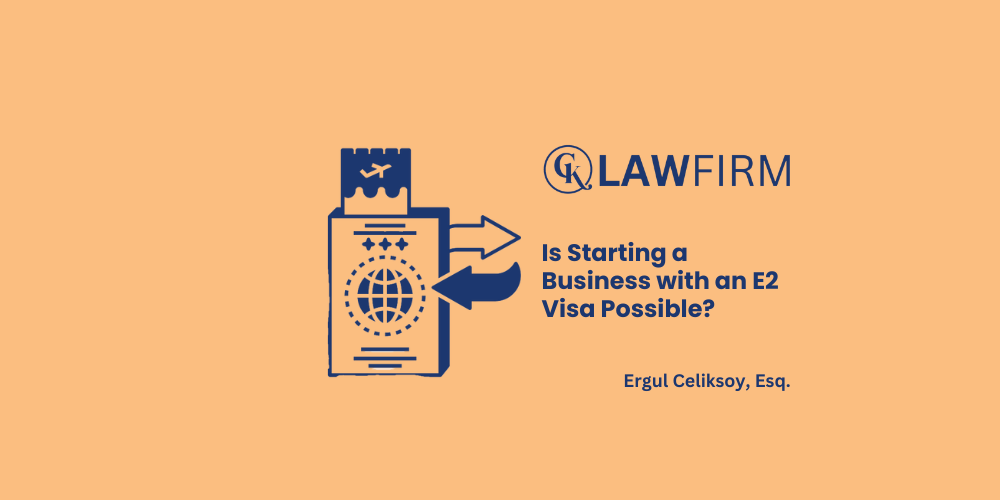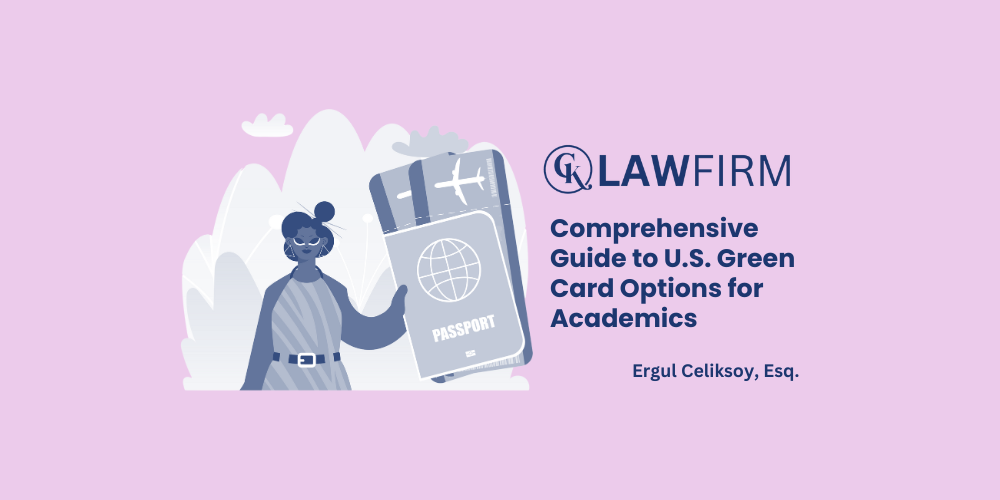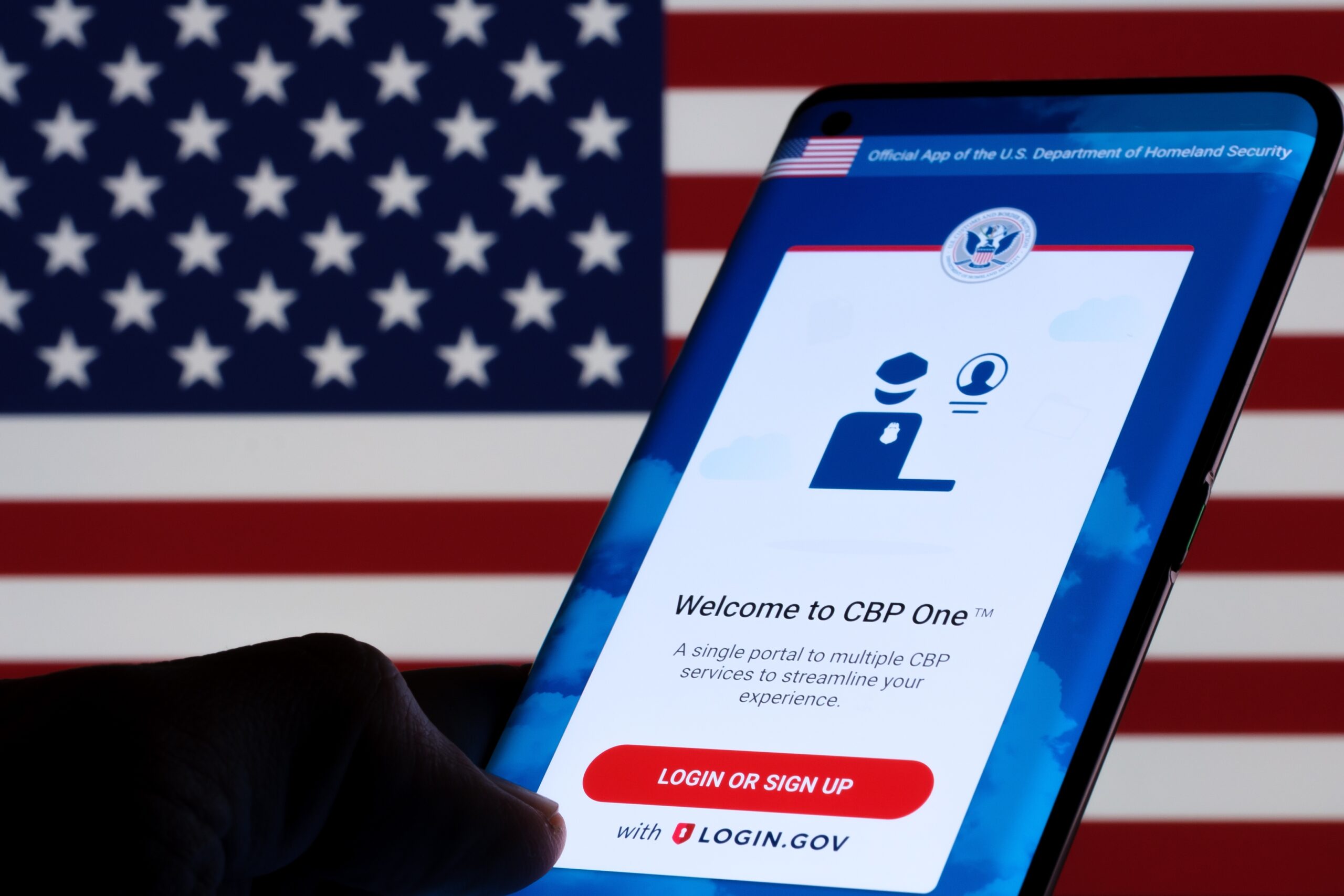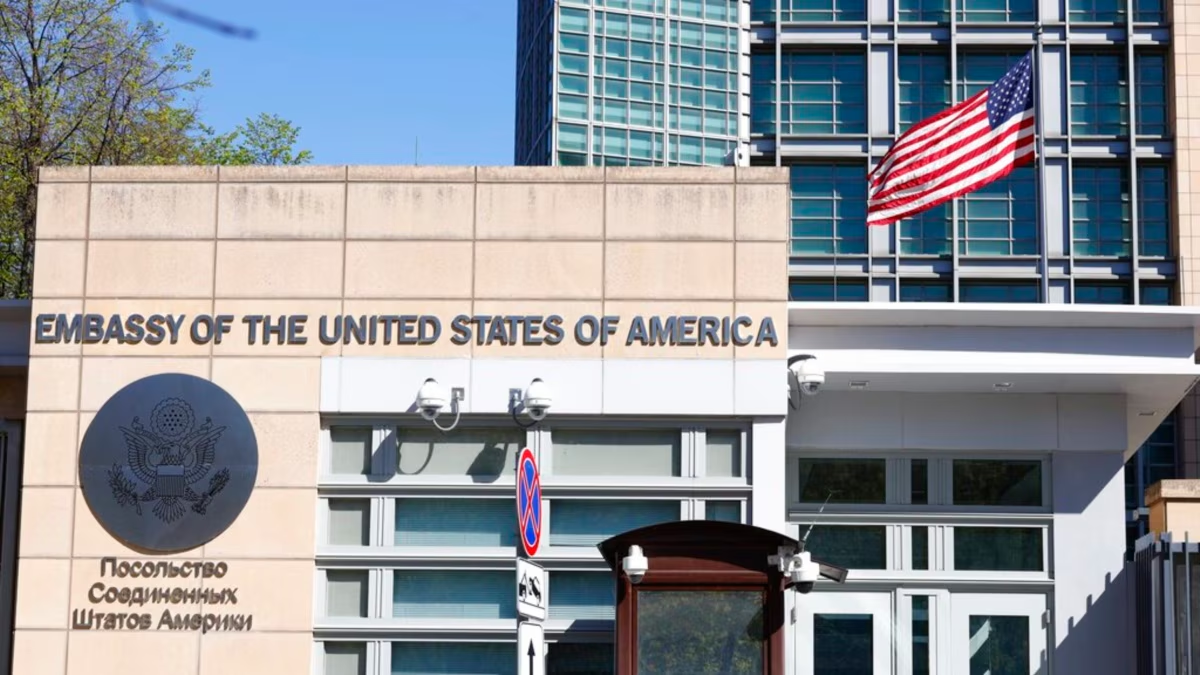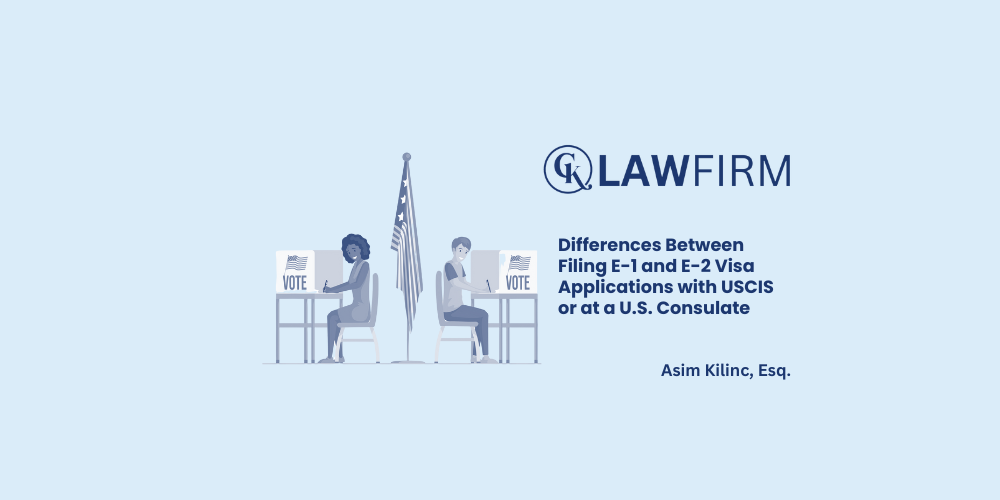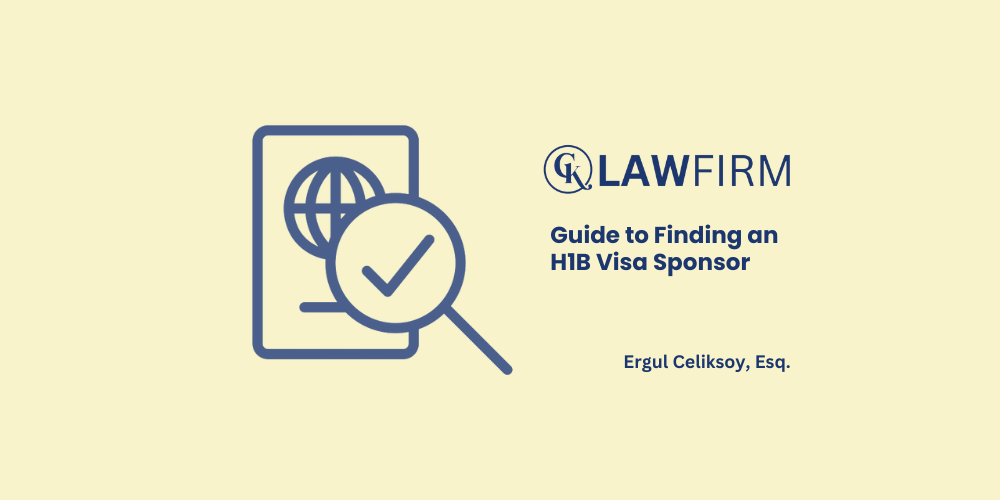Schedule an Appointment with Our Attorneys Now
By Ergul Celiksoy, Immigration Attorney at CK Law Firm
If you’ve ever dreamed of starting your own business in the United States, the E2 investor visa could be the key to turning your vision into reality. This visa allows entrepreneurs from treaty countries to establish or invest in a U.S.-based business and legally reside in the country. However, understanding the requirements, benefits, and process is crucial to making informed decisions and avoiding common pitfalls. In this blog, we’ll explore everything you need to know about the E2 visa and how it can help you achieve your business goals. In our article, I will touch on the following topics about the E2 investor visa:
- What Is an E2 Visa?
- Key Requirements for the E2 Visa
- Documents Needed for E2 Visa Applications
- Costs Associated with the E2 Visa
- Pathway to a Green Card
- Why the E2 Visa is Ideal for Entrepreneurs
With these headings, I will touch on the details about the E2 visa. For your questions about these issues, you can always contact us in the comments section of this blog or through our website. At the same time, if you want to contact me one-on-one, you can reach me via my LinkedIn account.
What Is an E2 Visa?
The E2 visa, also known as the E2 investor visa, is a non-immigrant visa for individuals from countries that have a treaty of commerce and navigation with the United States. This visa is designed for those who wish to make a “substantial investment” in a U.S. business. The investment must be significant enough to ensure the successful operation of the enterprise. Additionally, the applicant must have a controlling interest in the business, meaning they either own it outright or hold a majority stake.
The E2 visa for investors is available to nationals of eligible countries, which include a wide range of nations globally. Countries like Turkey, Japan, and Germany are part of this treaty agreement.
Benefits of the E2 Visa
- Fast Processing Times: Compared to other visa types, E2 visa processing is relatively quick, often completed within a few months.
- Inclusion of Family Members: Spouses and children under 21 can accompany the primary applicant. Spouses are also eligible to apply for work authorization.
- Renewable Status: The E2 visa can be renewed indefinitely, as long as the business remains operational and compliant with visa conditions.
- Opportunity to Live and Work in the U.S.: Entrepreneurs can actively manage their business while enjoying the benefits of living in the U.S., including access to top-tier education and healthcare for their families.
Key Requirements for the E2 Visa
Meeting the E2 visa requirements is essential for approval. Below are the main eligibility criteria:
- Citizenship of a Treaty Country: Only citizens of treaty countries are eligible for the E2 visa. Check the U.S. Department of State’s list of treaty countries to confirm your eligibility.
- Substantial Investment: The size of the investment is important for those who want to start a business with an E2 visa. Although US law does not set a specific lower limit, the investment is expected to be “large and meaningful”. For more detailed information, see “E2 Visa Investment Amount: How Much Should I Invest?” for more detailed information.
- Active Business Operations: The business must be active and operational. Passive investments, such as purchasing a rental property, do not qualify.
- Economic Contribution: The business should contribute to the U.S. economy, often demonstrated by creating jobs for U.S. workers or generating significant economic activity.
- Intent to Depart After Visa Expiry: As a non-immigrant visa, the E2 does not lead directly to a green card. Applicants must demonstrate their intention to leave the U.S. once their visa expires.
Documents Needed for E2 Visa Applications
A successful E2 visa application requires thorough preparation and documentation. Here are some of the key documents:
- Proof of Nationality: A valid passport from a treaty country.
- Investment Evidence: Bank statements, wire transfer receipts, or property purchase agreements proving the source and transfer of investment funds.
- Business Plan: A detailed plan showcasing your business’s objectives, financial projections, and market analysis.
- Operational Evidence: Documents such as leases, employee contracts, and supplier agreements.
- Personal Financial Records: Tax returns, asset declarations, and income statements to verify the legitimacy of your funds.
Costs Associated with the E2 Visa
The E2 visa cost includes various components:
- Application Fees: As of 2025, the visa application fee is approximately $205.
- Legal and Professional Fees: Attorney fees can range from $3,000 to $10,000, depending on the complexity of the case.
- Business Investment: The required investment amount varies by industry but should be sufficient to sustain the enterprise.
It’s essential to budget for all these expenses to ensure a smooth application process.
Pathway to a Green Card
While the E2 visa does not directly lead to a green card, some investors transition to permanent residency through other pathways, such as the EB-5 Immigrant Investor Program or family-sponsored petitions. Consulting an immigration attorney can help identify the best options based on your circumstances.
Why the E2 Visa is Ideal for Entrepreneurs
The E2 investor visa offers a unique opportunity to bring your entrepreneurial vision to life in the U.S. Whether you aim to launch a new business or expand an existing one, this visa provides the flexibility and support needed for success. With its renewable nature and family-friendly benefits, the E2 visa is a gateway to achieving professional and personal aspirations in America.
If you want to start a company or expand your existing business in the US, you can contact CK Law Firm through our Official Website to get detailed information about the E2 investor visa requirements. You can also contact me on my LinkedIn account for more information.
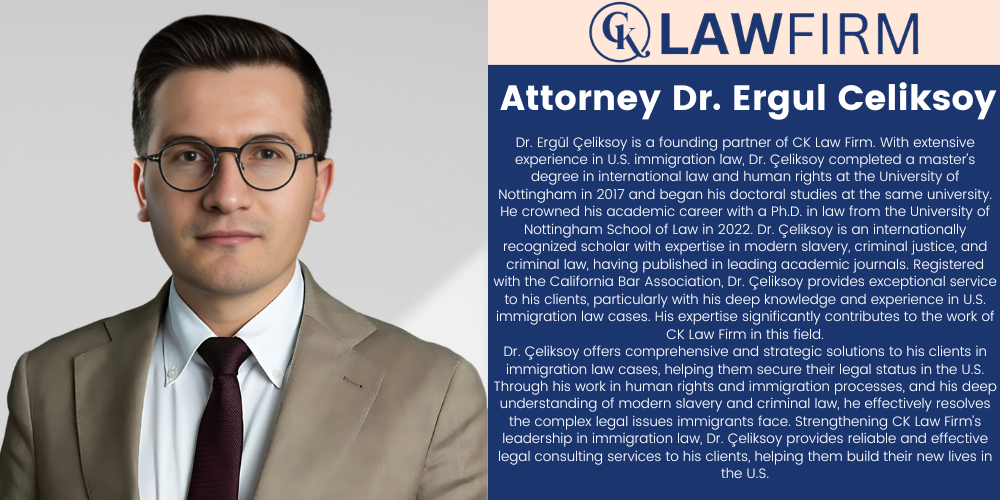
By Ergul Celiksoy, Immigration Attorney at CK Law Firm
How to Obtain a Green Card in the U.S. for Academics
For academics seeking permanent residency in the U.S., there are multiple Green Card options available. This guide outlines the primary programs academics can utilize to obtain a Green Card.
1. EB-1A: Extraordinary Ability
Academics with extraordinary abilities can apply for the EB-1A visa, designed for those with national or international acclaim in their field.
2. EB-1B: Outstanding Professors and Researchers
The EB-1B visa is suitable for professors and researchers with internationally recognized achievements, requiring at least three years of teaching or research experience.
3. EB-2 NIW: National Interest Waiver
Academics contributing to national interests can apply for the EB-2 NIW (National Interest Waiver), which does not require employer sponsorship.
4. EB-2: Advanced Degree Holders
Academics with a master’s or doctoral degree can apply for the EB-2 visa, which requires a job offer and employer sponsorship.
5. EB-3: Skilled Workers
Skilled individuals seeking academic positions may qualify for the EB-3 visa, which requires a specific job offer and employer sponsorship.
Application Process and Required Documents
The Green Card application requires evidence of academic achievements, reference letters, job offers, and complete forms as specified by USCIS.
Conclusion
There are several Green Card options for academics seeking permanent residency in the U.S. Determining the most suitable visa type and seeking professional advice is crucial. At CK Law Firm, we are here to guide you through the application process.
By Gulce Suzen, Law Clerk at CK Law Firm
The U.S. government’s reliance on the CBP One app for asylum appointments has been a contentious issue. Despite being designed to streamline the process, the app has numerous shortcomings that significantly impact asylum seekers.
1. Insufficient Appointment Availability: The CBP One app only allows for 1,450 appointments per day across eight ports of entry. This limited availability forces many asylum seekers to wait in dangerous conditions in Mexico for extended periods. Reports indicate that migrants in cities like Matamoros and Tijuana wait months for an appointment, exacerbating their vulnerability to violence and exploitation.
2. Accessibility Issues: The CBP One app has faced significant criticism for its lack of accessibility. Initially, it had serious issues with facial recognition for Black asylum seekers and was only available in English, Spanish, and Haitian Creole. These limitations prevent many non-English-speaking migrants and those with disabilities from accessing the app, hindering their ability to secure an appointment.
3. Impact of the CLP Rule: The Circumvention of Lawful Pathways (CLP) rule, implemented in conjunction with the CBP One app, presumes migrants who do not use the app are ineligible for asylum. This rule places an undue burden on asylum seekers, requiring them to prove they faced exceptional circumstances or were unable to use the app due to significant barriers.
4. Consequences of Limited Access: The inability to secure an appointment through the CBP One app leads to dire consequences. Many migrants, unable to wait in Mexico, risk crossing the border illegally. This not only endangers their lives but also increases the likelihood of their asylum claims being denied under the CLP rule.
5. Call for Reforms: There have been numerous calls for reforms to improve the CBP One app and the overall asylum process. These include expanding language options, increasing appointment availability, and addressing the app’s accessibility issues. Additionally, there is a push to eliminate the CLP rule’s rebuttable presumption of ineligibility to ensure fairer treatment of asylum seekers.
The CBP One app, as it stands, is inadequate for the needs of asylum seekers. Its limitations in appointment availability and accessibility place many at risk. Comprehensive reforms are necessary to ensure that the app fulfills its intended purpose without compromising the safety and rights of migrants.
For detailed information, visit Think Immigration: The CBP One App Is Not Enough.
By Gulce Suzen, Law Clerk at CK Law Firm
As the world continues to navigate the COVID-19 pandemic, the U.S. embassies and consulates are gradually reopening. Here’s what you need to know about the latest updates and procedures.
1. Gradual Reopening: U.S. embassies and consulates worldwide are reopening in phases. Applicants should check specific consulate websites for the latest information on available services and appointment scheduling.
2. Health and Safety Protocols: Strict health and safety measures are in place to protect staff and visitors. This includes mandatory mask-wearing, social distancing, and limited entry to prevent overcrowding.
3. Visa Services: Visa services are resuming, with priority given to emergency and mission-critical cases. Routine visa services will gradually expand as conditions permit.
4. Appointment Scheduling: Due to high demand and limited capacity, securing an appointment may take longer than usual. Applicants are encouraged to schedule appointments well in advance and remain patient.
5. Travel Restrictions: Travel restrictions may still apply to certain countries. It is essential to stay informed about current travel advisories and entry requirements for the U.S.
Conclusion: Stay updated with the latest developments as U.S. embassies and consulates continue to adapt their operations in response to COVID-19. For detailed information, visit the Boundless Blog.
By Asim Kilinc, Immigration Attorney at CK Law Firm
For those seeking to travel to the United States for business or investment purposes, the most commonly used visa types are the E-1 (Trader Visa) and E-2 (Investor Visa). These visas provide temporary work and residency permits for individuals involved in trade with the U.S. or planning to invest in the U.S. However, choosing the correct institution for submitting E-1 and E-2 visa applications can significantly impact the application process and outcomes.
- Applying for E-1 and E-2 Visa through USCIS
- Applying for E-1 and E-2 Visas through the US Consulates
For additional questions, feel free to reach out through the comments section of this post, send me a message directly on LinkedIn, or contact me through the website of CK Law Firm, an Immigration Law firm I co-founded.
Filing E-1 and E-2 Visa Applications Through USCIS
USCIS (United States Citizenship and Immigration Services) is the federal agency responsible for handling immigration and non-immigrant visa applications within the U.S. Individuals already in the U.S. can file their E-1 or E-2 visa applications through USCIS.
Application Process Through USCIS
- Application Content: Applications through USCIS require thorough preparation. They must include detailed documentation about business plans, trade relationships, and investments.
- Types of Applications: USCIS accepts applications for change of status or extensions for individuals already in E-1 or E-2 status within the U.S.
- Results: USCIS does not issue visas but provides legal status to stay in the U.S. If the applicant leaves the U.S., they must obtain a visa from a U.S. Consulate to re-enter the country.
Advantages of Applying Through USCIS
- Suitable for Those Already in the U.S.: If the applicant is already in the U.S. and wishes to apply for an E-1 or E-2 visa, applying through USCIS is more convenient. Instead of applying for a visa, the applicant requests a change of status to E-1 or E-2.
- Ease of Status Extension: Individuals in E-1 or E-2 status can easily extend their status through USCIS without needing to leave the U.S. during the extension process.
Disadvantages of Applying Through USCIS
- Issues Upon Leaving the U.S.: Approval from USCIS grants legal status but not a visa. Upon leaving the U.S., the applicant must obtain a visa from a U.S. Consulate to re-enter the country.
- Longer Processing Times: USCIS applications may take longer to process compared to consulate applications. Depending on the case load, this could take several months.
Filing E-1 and E-2 Visa Applications Through U.S. Consulates
Applicants residing outside the U.S. can apply for E-1 or E-2 visas through a U.S. Consulate in their home country. Consulate applications are typically used by individuals who need a visa to enter the U.S.
Application Process Through Consulates
- Application Content: Consulate applications also require comprehensive documentation showing business activities, investment amounts, and trade relationships with the U.S.
- Visa Interview: Applicants must attend a visa interview at a U.S. Consulate. If the application is approved, the E-1 or E-2 visa will be added to their passport.
- Results: Upon approval, the applicant receives a visa that allows them to enter the U.S. and maintain E-1 or E-2 status.
Advantages of Applying Through U.S. Consulates
- Direct Visa Issuance: Consulate applications result in the issuance of a visa, making it easier to enter and exit the U.S.
- Faster Processing Times: Consulate applications are generally processed faster than USCIS applications. Depending on the consulate’s workload, processing can take just a few weeks.
Disadvantages of Applying Through U.S. Consulates
- Must Be Done Outside the U.S.: Applicants inside the U.S. who wish to apply through a consulate must leave the country, which can add time and cost.
- Interview Stress: Consulate applications require a visa interview, where the applicant must clearly demonstrate strong trade ties with the U.S. and their intent to return to their home country.
Comparison Between USCIS and Consulate Applications
| Criteria | USCIS Application | Consulate Application |
|---|---|---|
| Application Location | Within the U.S. | Outside the U.S. (U.S. Consulates) |
| Result | Legal status to stay in the U.S. | Visa issuance (entry and exit rights) |
| Interview | No interview required | Mandatory visa interview |
| Processing Time | Longer | Shorter |
| U.S. Entry | Must apply for a visa to re-enter | Direct entry with a visa |
| Application Fees | USCIS application fees | Consulate application fees |
Conclusion
E-1 and E-2 visas offer significant opportunities for individuals engaged in trade or investment with the U.S. However, the proper planning of the application process and choosing the correct submission method are critical to ensure visa approval. While USCIS applications are suitable for those already in the U.S., consulate applications provide a faster and more flexible solution.
For professional support and detailed information, feel free to contact us via our website at cklawfirm.org, by email at info@cklawfirm.org, or through LinkedIn.
Who is Attorney Asım Kılınç?
Attorney Asım Kılınç is the co-founder of CK Law Firm and is recognized for his expertise in immigration law and U.S. asylum applications. Kılınç completed his Master’s degree at Southern Methodist University Dedman School of Law and is a member of the Missouri Bar Association, with a focus on U.S. immigration law.
Attorney Kılınç’s extensive knowledge and experience in immigration law have significantly contributed to CK Law Firm’s success in this field. He has actively participated in the preparation of over 1,000 cases, demonstrating his expertise in this area. By providing comprehensive and professional legal support to his clients, he helps them adapt to their new lives in the U.S.
Attorney Kılınç is also well-versed in U.S. asylum applications. He meticulously guides his clients through the process and ensures they receive the best legal advice. He provides top-quality service to clients in matters of citizenship, Green Card, work permits, and other immigration processes, supporting them from start to finish on their journey to U.S. citizenship.
Attorney Asım Kılınç, who solidifies CK Law Firm’s leadership in immigration law and U.S. asylum applications, offers reliable and effective legal consultancy services to clients, assisting them in building a new life in the U.S.
By Ergul Celiksoy, Immigration Attorney at CK Law Firm
The H1B visa is one of the pathways for foreign professionals dreaming of building a career in the United States. However, the most critical aspect of obtaining this visa is securing sponsorship from a U.S.-based company. In this guide, I will cover key topics related to finding an H1B visa sponsor. Here’s what you’ll find in this article:
- What is the H-1B Visa, and Why is Sponsorship Important?
- How to Find Companies that Offer H-1B Sponsorship
- Key Considerations When Searching for a Sponsor
- Strategies for Securing an H-1B Sponsor
- Costs Covered by H-1B Visa Sponsors
If you have additional questions about the H-1B visa, feel free to share them in the comments section of this blog or reach out via the CK Law Firm official website. For detailed information or consultancy services, you can also connect with me directly on LinkedIn.
What is the H-1B Visa, and Why is Sponsorship Important?
The H-1B visa is designed for professionals seeking to work in specialized occupations in the United States. To apply for this visa, you must have a U.S.-based company willing to sponsor your application. This makes finding an H-1B visa sponsor a critical step, as you cannot proceed with the application without securing sponsorship.
Responsibilities of Sponsor Companies
Sponsor companies have various responsibilities in the H-1B visa process. Here are the primary duties of H-1B visa sponsors:
- LCA (Labor Condition Application): This is a submission to the U.S. Department of Labor, certifying that the job will not harm the U.S. labor market and offers fair conditions for the employee.
- Filing Form I-129: This form is a fundamental component of the H-1B visa application. It officially declares the employer’s request for an H-1B visa on behalf of the employee. Submitted to USCIS (U.S. Citizenship and Immigration Services), the form outlines the details of the employment relationship between the employer and the employee.
- Payment of Fees: All official fees related to the H-1B application must be covered by the employer.
Sponsor companies bear both financial and administrative responsibilities, making them the cornerstone of the H-1B visa application process. For this reason, professionals seeking an H-1B visa sponsor should carefully evaluate potential employers during this process.
How to Find Companies Offering H-1B Sponsorship
Finding a sponsor company for an H-1B visa can be a time-consuming process, but with the right strategy, you can streamline your efforts and save valuable time. Here are some suggestions to help you identify companies suitable for sponsorship:
1. Use Databases of Companies Offering H-1B Sponsorship
Leverage platforms that list companies with a history of filing H-1B visa applications. These tools provide valuable insights into sponsorship opportunities:
- MyVisaJobs: A comprehensive database displaying past H-1B applications and approval rates.
- H1BGrader: A platform that analyzes sponsorship histories and the performance of companies.
2. Utilize Social Networks
Platforms like LinkedIn allow you to directly connect with companies that offer H-1B sponsorship. Social networks can be a powerful tool for establishing direct contact with potential sponsors.
3. Apply to Large Technology Companies
Tech giants like Amazon, Google, and Microsoft hire thousands of professionals annually through the H-1B visa program. By keeping track of available positions that match your expertise, you can secure a job and obtain a work permit in the U.S. Regularly monitor career opportunities to connect with these companies and find roles aligned with your qualifications.
4. Academic Institutions
Many universities and research centers in the U.S. offer H-1B sponsorship. If you have academic expertise, consider reaching out to such institutions. This can provide an opportunity to advance your academic career within a globally recognized organization.
What to Consider When Searching for an H-1B Sponsor
Finding a sponsor company can sometimes be challenging for applicants. Those seeking H-1B visa sponsorship should pay close attention to certain factors to ensure a smoother process. Before starting your application with an employer, have a detailed discussion to secure your position. Key considerations include:
- Company’s H-1B History: Opt for companies that have previously filed H1B visa applications. Working with an employer familiar with the process can significantly ease your experience.
- Job Compatibility: Ensure the position aligns with your area of expertise. This increases the likelihood of your application being approved and helps avoid surprises once you start working in the U.S.
- Transparency: Confirm that the employer covers all necessary fees and follows official procedures accurately.
By focusing on these factors, those seeking H1B sponsorship can better navigate the process and improve their chances of visa approval.
Strategies for Securing an H-1B Sponsor
To increase your chances of finding a sponsor, it’s essential to adopt the right strategies. A well-planned approach can simplify what might seem like a complex process. Finding a sponsor becomes much easier when you follow these steps:
- Expand Your Network: Actively participate in professional platforms, particularly those related to your field of expertise. This allows employers to notice your skills and professional achievements.
- Explore Multiple Platforms: Don’t limit yourself to just one platform for sharing your experience and knowledge. Try different platforms to strengthen your connections and increase visibility.
- Present Yourself Effectively: Ensure your resume highlights your qualifications, education, experience, and skills clearly and professionally.
- Be Patient: The process of finding a sponsor may take time. Stay confident, persistent, and patient throughout your journey.
Following these strategies will not only help you find the right sponsor but also increase your chances of securing an H-1B visa successfully.
Costs Covered by H-1B Visa Sponsors
Sponsor companies are responsible for covering certain expenses associated with the H-1B visa application. The primary costs that sponsors must pay include:
- Application Fee: $460
- Anti-Fraud Fee: $500
- Education and Workforce Fee: Ranges from $750 to $1,500 depending on the size of the employer.
- Premium Processing Fee (Optional): $2,500
These payments are the responsibility of the sponsor company and are part of their official obligations. For more detailed information, you can check out our article, “How Much Does H-1B Visa Cost? (Detailed Pricing)“.
In this guide, we discussed what the H1B visa is and how you can find a sponsor. If you have any questions, feel free to leave a comment on this blog or reach out to us through the official CK Law Firm website. For personalized inquiries or consultancy services, you can also connect with me on LinkedIn.
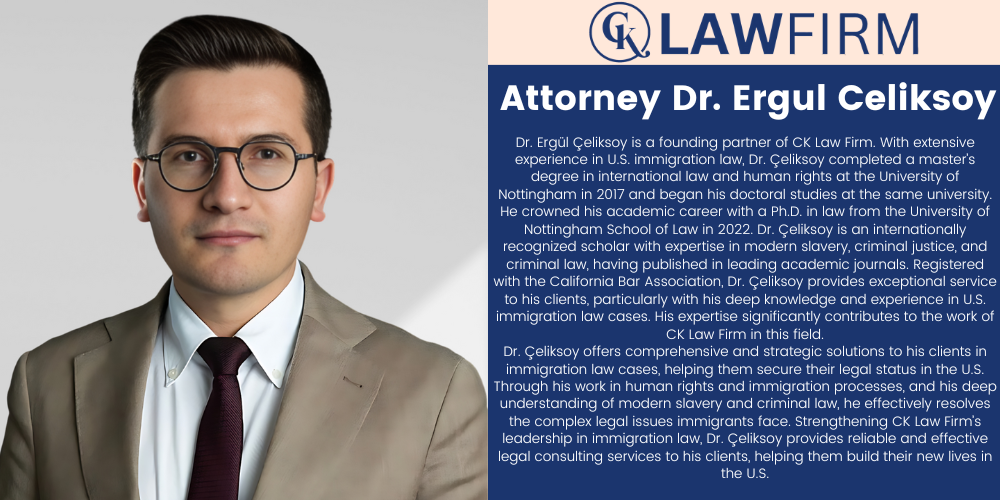
Subscribe to Our Newsletter
Subscribe to our newsletter to stay informed about the latest announcements and articles written by our attorneys on U.S. immigration processes.
Sobre Nosotros
Contáctanos
+1 (945) 527- 23 22
Correo electrónico
info@cklawfirm.org
Dirección
2800 Regal Rd #102, Plano, TX 75075

All Rights Reserved by CK Law Firm.


